-
The National Commission of Romania for UNESCO (NCR UNESCO) was established as of the date of Romania's accession to UNESCO in 1956. By Government Decision 624/1995 The Commission was reorganized. The normative act establishes the character of the Commission as a public institution with a legal personality coordinated by the Ministry of Education and the role of the Commission to ensure Romania's connection with UNESCO and as a multidisciplinary body of analysis, synthesis and coordination of programs, projects and activities in Romania that derive from the Constitution, resolutions, programs/budgets of UNESCO.
Romania joined UNESCO on July 27, 1956. You can consult Romania’s member state file here.
The National Commission of Romania for UNESCO collaborates with the ministries, the Permanent Delegation of Romania to UNESCO Paris, as well as with other central institutions and bodies.
The National Commission of Romania for UNESCO collaborates with the ministries, the Permanent Delegation of Romania to UNESCO Paris, as well as with other central institutions and bodies.
The Commission's activity is structured on 5 Sub-Committees, each of which is serviced by one expert: Education Subcommittee, Culture Subcommittee, Science Subcommittee, Communication and Information Subcommittee, Interdisciplinary Programs Subcommittee. The management of the Commission is ensured by the Secretary-General.
- Provides expert advice to the Government of Romania in matters relating to UNESCO's work (consultative role);
- Develops, implements and evaluates UNESCO programs in Romania; supports the knowledge, internally, and, where appropriate, the implementation of UNESCO Recommendations, Declarations and Conventions (participatory role);
- Associates to the UNESCO activities at national level the ministries, various state institutions, UN agencies in Romania, organizations and personalities whose work is in the field of education, science, culture, communication and information and internationally at bilateral, subregional, regional or inter- regional level other UNESCO National Commissions or entities subordinated to or in cooperation with UNESCO (liaison role);
- Informs at international level UNESCO and at national level governmental structures, civil society, business environment and the general public on the objectives and activities of UNESCO (information role).
- Makes proposals to the Government on the measures to be taken in connection with the program and the work of the Organization;
- Organizes the necessary work for the implementation of UNESCO Resolutions and Programs, collaborating for this purpose with ministries, state institutions, intergovernmental and non-governmental organizations, as well as with personalities involved in education, science, culture, communication and information;
- Encourages the participation of national, governmental and non-governmental institutions, various personalities in the development and execution of programs, so that the Organization benefits from the intellectual, scientific, artistic or administrative capacities it needs;
- Disseminates information on UNESCO's objectives, programs and activities to develop public interest;
- Participates in the selection of candidates for UNESCO international vacancies, UNESCO scholarships and UNESCO awards;
- Participates alongside other National Commissions in the development of studies on issues of concern to the Organization;
- Undertakes on its own initiative activities related to the general objectives of UNESCO;
- Collaborates with UNESCO's regional offices and centers to develop bilateral, regional, subregional and inter-regional cooperation in the fields of education, science, culture, communication and information. This collaboration translates into participation in the design, execution and evaluation of projects and can take the form of jointly organized studies, seminars, meetings and conferences, as well as exchange of information, documents and visits.
Top


